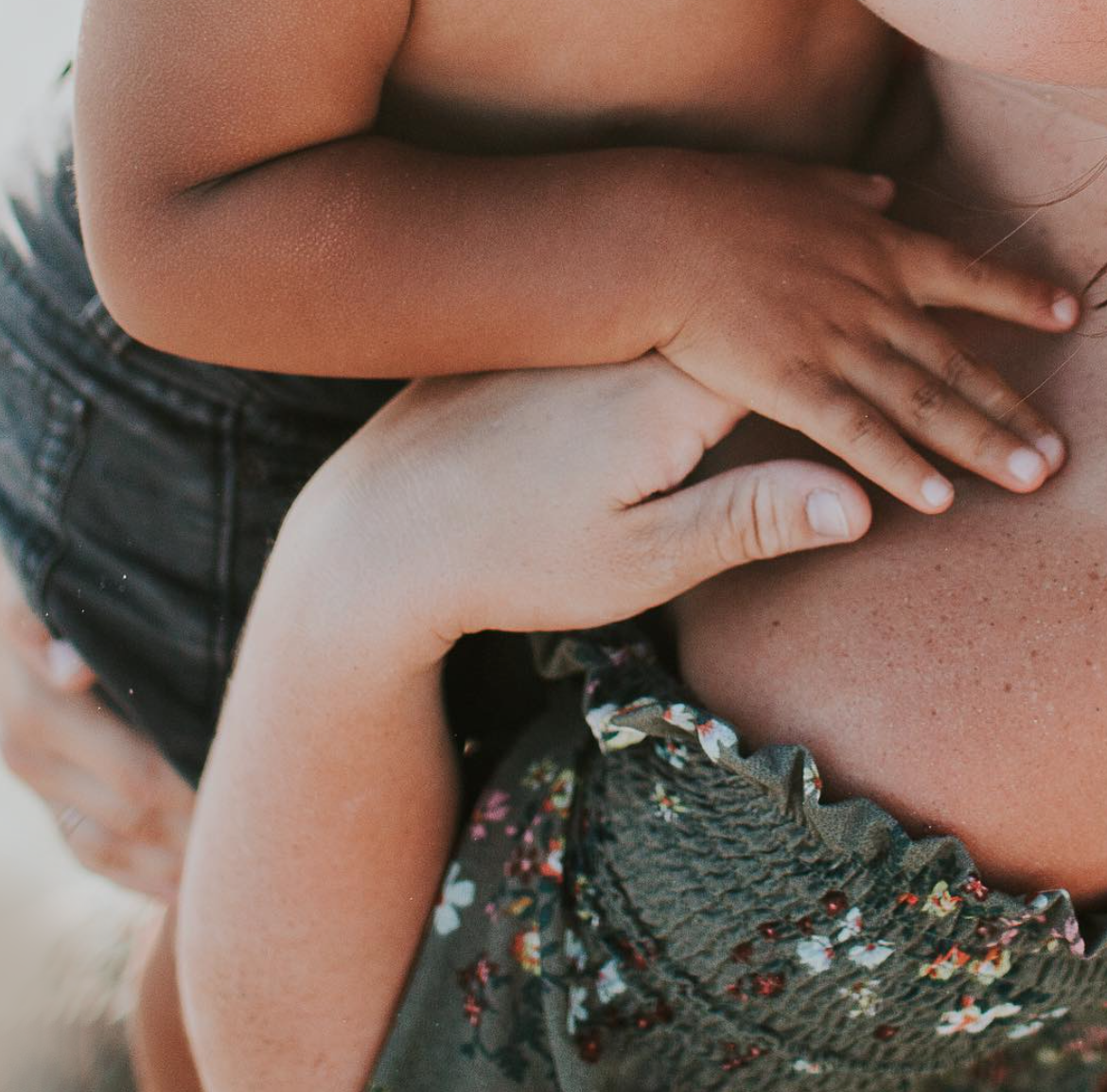Lately, there has been a rather large discussion on the topic of adoption fundraising. On my Instagram story, I asked my followers what they thought of it. I sifted through a multitude of responses from adoptive parents, birth parents, adoptees, and adoption professionals. What I learned from this wide variety of opinions was basically one sure thing: not all adoption fundraisers are created equal. In my career, I have observed hopeful adoptive parents hold many different types of fundraisers to bring baby home. I have also sat on the other side of the table, searching for a family to raise my own child, knowing I would likely never be able to provide for my child financially if I chose to parent.
Finances are an icky topic to discuss. For most people, money is private and is not discussed with others in great detail. We never want to treat this child as a commodity, plus no one ever wants to talk about what they’re working within their bank account. Well, uncomfortable or not, financial security is a topic that is not to be avoided. Adoption is expensive, no matter which way you shake it. Unexpected costs are inevitable, and let’s be real, who has $30k-60k lying around? Not many of us.
One of the responses came from someone who works for a non-profit that gives grants for adoption. She said that when a family applies for their support, they go through financial records with the couple. They not only want to see that they have been saving for the adoption, but that their budget has been changed and they have cut out unnecessary spending. She also stated that they will never finance more than half of an adoption because they want to know that our families are invested themselves and not just “good at asking for money.”
Here are a few questions to ask yourself when exploring options of adoption fundraising:
- Are we fundraising for the total cost of the adoption, or limiting ourselves to certain categories of expenses*, or a particular percentage or sum?
*You could commit to saving up money to cover expenses such as the placement fee and homestudy, and then fundraise for things like the birth mother’s counseling and medical expenses.
- How can we commit to tightening our budget since we have decided to adopt?
- How are we choosing to fundraise – is it appropriate and are we being respectful in the process?
- Would we be embarrassed if a potential expectant mother discovered the way we were fundraising?
- Would we be ashamed to someday disclose this method of fundraising with our future child as an adult adoptee?
At the end of the day, your answers to these questions are ones that you will ultimately have to live with.
There was one method of fundraising that was approached with hesitation, and that was crowdfunding. Crowdfunding for adoptions is usually by way of GoFundMe, but also there are others, such as AdoptTogether. Sometimes people want to contribute to the cause, plain and simple without receiving anything in return. These sites help all of the friends and family to contribute in a straightforward way.
These were responses that were widely accepted methods of fundraising:
- Saving
- Applying for grants
- Getting a second job or picking up extra hours, if possible
- Selling a certain item like shirts, mugs, cookies, having a garage sale, etc. Getting a loan
- Refinancing a mortgage
So why all the disagreement about adoption fundraising? The most common reasoning against fundraising, was the consideration of the expectant mother’s hardship. Birth parents typically place for more than one reason – but it would be naive to overlook the fact that financial hardship is usually the top reason a woman chooses to place her child. Lack of financial stability combined with the societal omen of single motherhood is a heavy concoction that drunkens society into telling you that “you’d better figure out how to solve your problem.” When you’re poor and unsupported with a baby on the way, most people aren’t eager to fuel up your GoFundMe. While it takes more stability than money to raise a child, it’s not wild to wonder why we give money to hopeful adoptive parents instead of a struggling mother in need.
Following closely behind, there the issue of the Adoption Tax Credit, which is perhaps cause for my highest eyebrow raise when it comes to adoption fundraisers. As a birth mother, it concerns me when hopeful adoptive parents intend to raise the full amount of the adoption. It makes me feel as though they are profiting off of adopting our children. There is financial incentive to adopt, but no incentive to keep families together. While the adoption tax credit is not a giant check that the adoptive parents are handed, it is applied to their taxes for the year after the finalization. This tax credit goes toward income and property taxes that would otherwise have to paid. To me, it’s minor details. No matter where the money is going, if you raise the full ticket price for an adoption on GoFundMe, and then receive a credit of $13,180 the following year, that is a profit. As a birth mother, I would be lying if I said that doesn’t feel demeaning.
The most common response I received from adoptive parents on this topic was that fundraising felt wrong and gross. Most families that held fundraisers felt they were backed into a corner and had limited options for coming up with the funds. Some were simply gifted with the money from their parents, a family friend, or someone at church. Many times it was a surprise, and they were ever grateful for such a gift. There are many other fundraising methods that have not been mentioned, but that is because those tend to fall somewhere in the middle, and I won’t direct you on a decision your family would be best at making.
Adoption is way too expensive, and that is a huge issue. Right now
So with all this talk of money, if you are feeling uncomfortable, don’t worry. So am I. I never wish to nitpick at your adoption journey and tell people what they can and can’t do. But please be vigilant and empathetic. Go with your gut and don’t do things that feel icky. There is always a different way to do it, and in the end, only you and your family will live with the choice. THANKS FOR COMING TO MY TED TALK!!! 🙂











JI totally get what you are saying–this is a tricky subject. Fundraising for myself did feel icky when we first started (for me at least) and we raised only the amount that we needed to fill the gap. But there is a difference, as you note, between being able to afford the cost of adoption up front and being able to afford to raise a family. If I am reading you right, you have three problems with adoption fundraisers:
(1) optics? That it looks like we are commodifying children–I have seen fundraisers that can sound that way, and we want to be really careful to be sure that this isn’t the case… though human nature being what it is, we know that even biological parents can commodify their children… and we should be vv careful about our language (2) The expectant mother’s financial situation is pitted against the hopeful adoptive couples’ situation and people are so willing to give to the latter, but not the former. In cases in which that is true, I think that goes to the heart of a deeper problem that might be a more fundamental reason that a young woman would choose adoption; namely, not having support of family and friends long term financial or otherwise. It would be so hard to be a single parent without that. At any rate, I would note that the situations are not the same and they can’t really be fairly compared. If it is the pregnancy and immediate expenses surrounding pregnancy that are the reason that the expectant mother is considering adoption, there ARE so many pregnancy resource centers and maternity homes to help with those immediate needs. I regularly volunteer and donate to several in my city and I know there are many more that I don’t even know about (of course, I wish there were more). If finances are the reason for choosing to place and it is because the resources needed are immediate, like this, I would hope that the expectant mother would not choose adoption. There is another way. The long term financial instability of raising a child is what is more problematic and probably more at the heart of the issue. In other words, a Go Fund Me helps the hopeful adoptive family, but it doesn’t help the expectant mother in this case, except in what can be gotten through other means (PRCs, Medicaid etc). The adoptive family, while they might not have the immediate resources needed (30-40k!) they do have long-term financial stability. So, people help fill that gap with fundraising. For long term support, there are (and hopefully will continue to be) government programs to help with those ongoing financial difficulties for women who decide to parent.(3) The tax credit. The government does support families staying together in the child tax credit, but you are right, it is not as much as the adoption tax credit and if you are using the tax credit for something other than adoption, that seems a bit dishonest. We fundraised a good amount for our first adoption (not all, we saved as much as we could, too) and the adoption tax credit went directly to our future adoption fund, which was later used to help a young woman who had chosen us to adopt her child but changed her mind, those funds allowed her to be able to parent. Those “at risk funds” became a worthwhile donation to her and her child. But had we not fundraised that (or rather, received it back as a tax credit, in this case) it would have been a more serious financial strain on us as two teachers. So, I think… from a fundraising and adoptive parent standpoint that is the way to look at the money that is being raised and where it is going (as you point out). The money that is raised is helping a young woman in a crisis pregnancy who has decided to place for adoption to get the resources and help she needs whether or not she decides ultimately to place or parent. Also, you said it would be naive not to mention that finances were a common reason for placement–some of the other factors that lead to women choosing to place that require people who are willing to check those boxes and assume certain risks possibly for the whole life of the child. My point is that it would be a real sadness if the only people who could adopt were people who were independently wealthy. We certainly would not be on that list for many more years if it wasn’t for the generous support we have received.